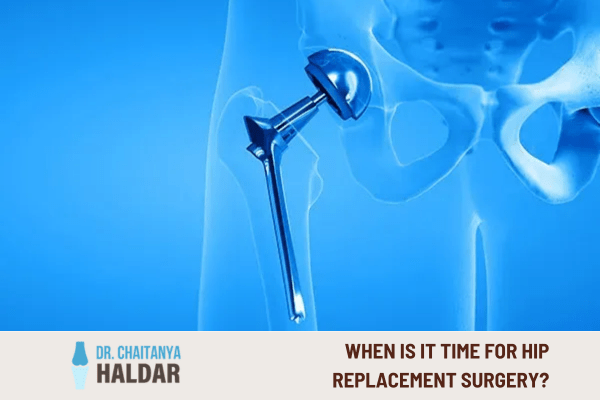Introduction: Hip replacement surgery, also known as hip arthroplasty, is a surgical procedure performed to relieve pain and improve function in individuals with severe hip joint damage. It is a significant decision that can greatly enhance quality of life for those who have exhausted non-surgical treatments. In this article, we will explore key indicators that suggest it may be time to consider hip replacement surgery and seek expert advice from the best hip replacement surgeons.
- Persistent and Debilitating Hip Pain: When hip pain becomes chronic, severe, and interferes with daily activities such as walking, climbing stairs, or even sleeping, it may be a strong indication that conservative treatment options are no longer effective. Constant pain that affects mobility and overall quality of life should prompt a consultation with a hip specialist.
- Limited Range of Motion and Functionality: As hip joint deterioration progresses, you may experience a significant decrease in range of motion, making it difficult to perform routine tasks and activities. If your hip mobility is severely restricted, hindering your ability to carry out normal daily functions, it may be time to consider hip replacement surgery as an option to restore range of motion and improve functionality.
- Non-Responsiveness to Conservative Treatments: When non-surgical approaches, such as pain medications, physical therapy, assistive devices, and injections, fail to provide long-term relief or result in diminishing returns, hip replacement surgery may be necessary. If you have diligently tried these conservative treatments without significant improvement, it’s crucial to discuss other options, including surgical intervention.
- Degenerative Joint Conditions: Certain degenerative conditions, such as osteoarthritis, rheumatoid arthritis, or avascular necrosis, can cause irreversible damage to the hip joint. If diagnostic tests, such as X-rays or MRIs, reveal extensive joint degeneration, including bone-on-bone contact or significant cartilage loss, it may be an appropriate time to consider hip replacement surgery.
- Lifestyle Limitations and Impact on Quality of Life: When hip pain and limited mobility begin to impact your ability to engage in activities you once enjoyed, affect your independence, and significantly diminish your quality of life, it’s crucial to evaluate the potential benefits of hip replacement surgery. Restoring mobility and alleviating pain can significantly improve overall well-being and allow you to regain an active and fulfilling lifestyle.
Conclusion: The decision to undergo hip replacement surgery is a personal one and should be made in consultation with a skilled hip replacement surgeon. When persistent hip pain, limited range of motion, non-responsiveness to conservative treatments, degenerative joint conditions, and a significant impact on quality of life coincide, it may be an appropriate time to consider hip replacement surgery. By addressing the underlying joint damage and restoring function, hip replacement surgery can provide relief, improve mobility, and enhance overall quality of life for individuals suffering from severe hip joint conditions.
